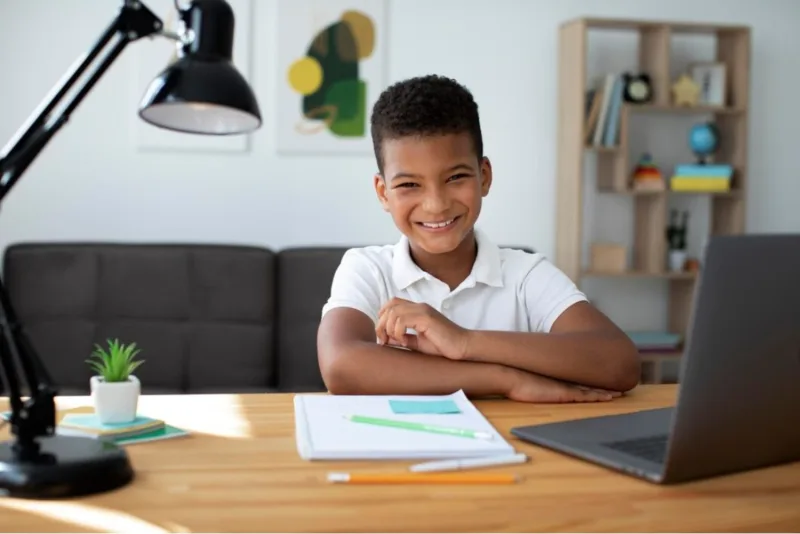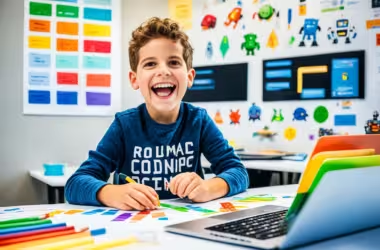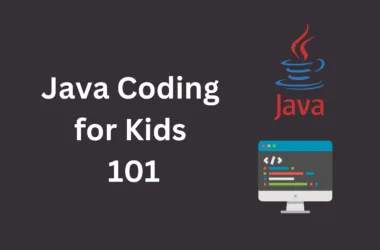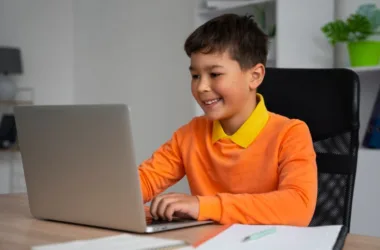Does your child love games, robots, and cool animations? Coding can help them make all these things and more!
The best part? Coding can be super fun, not boring! Forget long lessons, coding can be like playing games and building stuff.
This guide will show you awesome ways to make coding fun for kids. We’ll show you how to turn coding into a game, how to let kids use their imaginations, and how coding can be used in the real world!
Let’s look at them;
1. Introduce Games & Activities
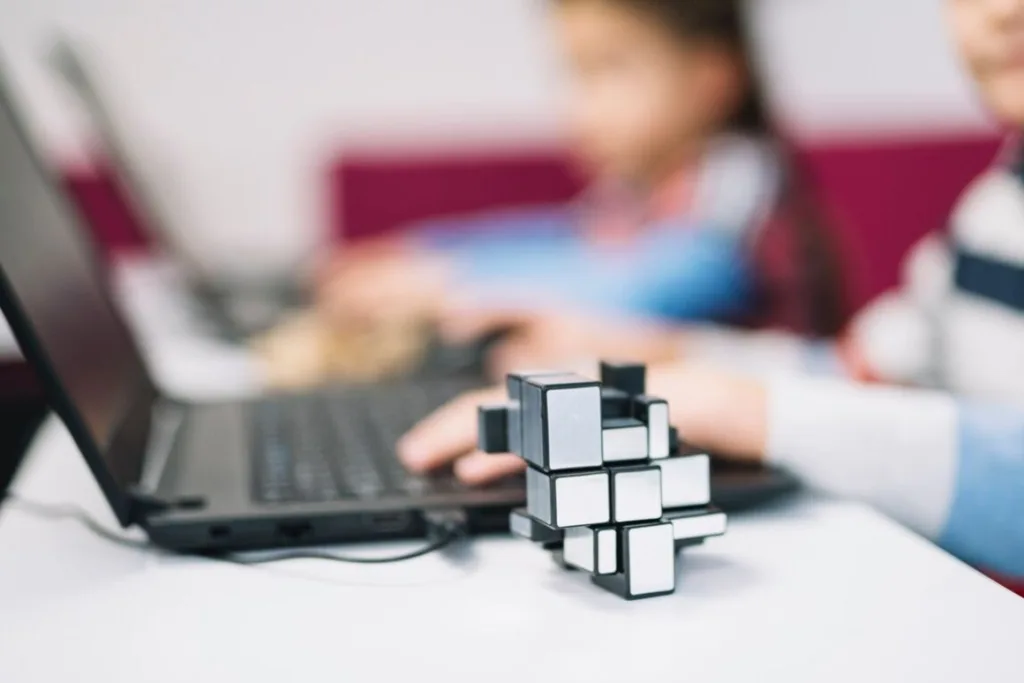
Games are a natural fit for kids, and there are tons of fantastic coding games available. Platforms like Scratch allow kids to create their own animations and games using drag-and-drop blocks.
These blocks represent coding concepts like sequencing (making things happen in order), loops (repeating actions), and conditionals (making choices based on situations).
For example, imagine a child creating a simple game where their character collects coins. By dragging and dropping code blocks, they can make the character move left and right, jump over obstacles, and even keep track of the score!
Games like this make learning to code feel less like work and more like building and playing in a virtual world. They’re not just having fun; they’re mastering essential coding concepts all along!
2. Make it Creative
Coding isn’t just about following instructions; it’s about creativity and problem-solving. Just like with any creative outlet, kids should feel free to experiment and express themselves through code.
Here are some ways to encourage their creativity;
- Open-ended coding platforms: Look for coding games and environments that offer a wide range of possibilities. Scratch, for example, allows kids to create anything from animations and games to interactive stories.
- Incorporate their interests: Does your child love animals? Have them code a virtual pet! Are they obsessed with superheroes? Challenge them to create a superhero simulation game. Tying coding to their passions will make the whole experience more engaging.
- Let them customize: Many coding games allow for customization. Encourage your child to personalize their creations by adding their own characters, storylines, and sound effects. This sense of ownership fosters a deeper connection to the coding process.
3. They can Learn with Friends
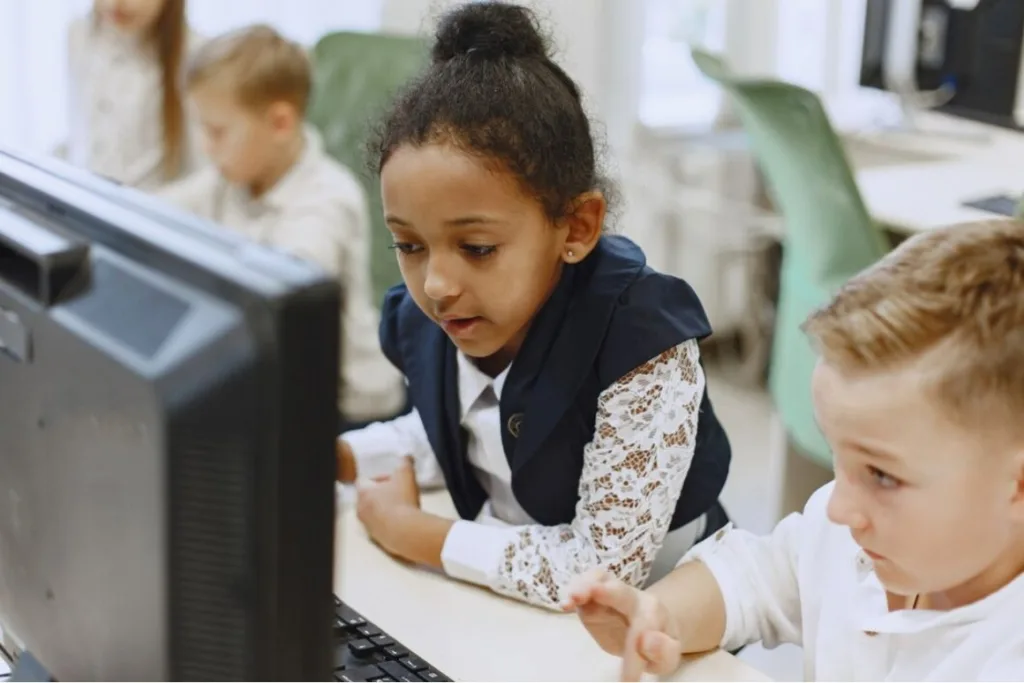
Learning alongside friends can make anything more fun and engaging, and coding is no exception!
Let’s look at some of the ways to create a collaborative coding experience for your child;
- Coding clubs or workshops
Many libraries, community centers, and even schools offer coding clubs or workshops specifically designed for kids. These programs provide a social environment where kids can learn from each other, share ideas, and work on projects together.
- Hackathons or Coding Events
Organize hackathons or coding events for kids where they can work in teams to tackle coding challenges or build projects within a limited time frame. These events foster camaraderie and provide an opportunity for kids to showcase their skills.
- Pair programming: Pair programming is a technique where two programmers work together on a single task. You can replicate this concept at home by having your child team up with a sibling or friend to work on a coding project.
- Online coding communities
The internet offers a plethora of online coding communities specifically geared towards kids. These platforms allow them to connect with other young coders, share their creations, and get feedback on their work. It’s a great way to build a sense of community and belonging within the coding world.
4. Try Making it Personal: Projects They Love
Instead of following pre-made tutorials all the time, empower your child to create their own coding projects based on their interests.
This personalization makes learning more meaningful and allows them to see the real-world applications of coding.
Here’s how you can encourage personal projects;
- Brainstorming sessions: Set aside some time to brainstorm project ideas together. Ask your child what kind of games, animations, or stories they’d like to create using code.
- Start small and build: Don’t be afraid to start with simple projects and gradually increase the complexity as your skills develop. A sense of accomplishment at each stage will keep them motivated.
- Provide resources and support: Help them find online tutorials, coding challenges, or even books that relate to their project theme. Offer guidance and answer questions along the way, but ultimately, let them take ownership of their creation.
5. Celebrate their Progress
Learning to code takes time and effort, so it’s important to acknowledge and celebrate your child’s progress every step of the way. Here are some ways to do it:
- Highlight their achievements: Point out specific things they’ve accomplished, like mastering a new coding concept, fixing a bug in their program, or completing a particularly challenging level.
- Create a “code wall of fame”: Dedicate a space in your home to showcase their coding creations. This could be a physical bulletin board displaying screenshots or printed code, or even a digital space where they can share their work online (with your permission, of course!).
- Reward their efforts: Consider offering small rewards for reaching coding milestones. This could be anything from a new coding game or book to a fun family outing. The key is to acknowledge their hard work and dedication.
6. Make them see Coding Beyond the Screen
Coding isn’t just about things you see on a screen. It’s like a special way of thinking that you can use everywhere! We use this kind of thinking in many things we already do.
For example, when you follow a recipe to bake cookies, you’re putting the steps in order, just like you do with code! Or when you build with Legos, you have to follow instructions to make something cool. That’s kind of like using code too!
There are even toys that let you use code in the real world. Imagine robots you can program to move and do tricks, or games that teach you code with fun activities. The more you learn about code, the more you’ll see it all around you!
7. Try Coding Challenges
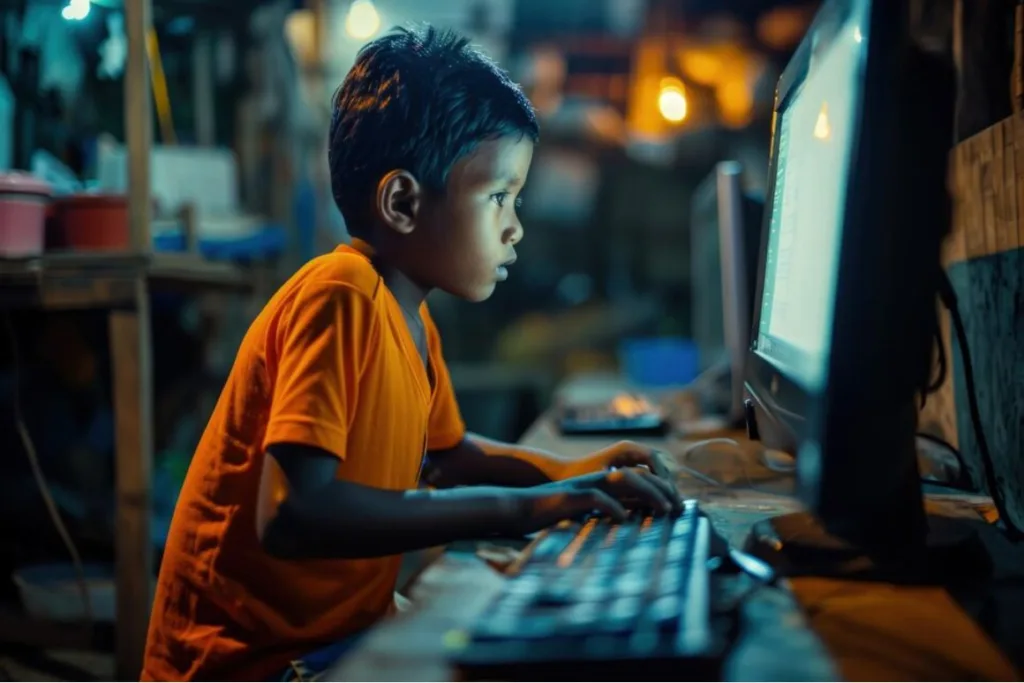
Learning to code is like learning a cool new game! There are some tricky parts, but once you get good, it’s super fun. Coding challenges are like special games that help kids who are learning to code get even better.
There are different websites with all sorts of fun coding games. Some might be like puzzles where you use code to help a friend find their lost toy.
Others might be like races where you have to code your character to reach the finish line first. There could even be games where you build your own character and give them special powers with code.
Examples of websites like this are Codecombat and Lightbot
These games are a great way for kids to learn new coding skills. They might learn how to give instructions one at a time, or maybe they’ll learn how to use special words to make their character move around. And when they finally win the game and see their code working perfectly.
8. Let Them Be the Teacher
Coding is a skill that’s even more fun to share! Once your child gets comfortable with the basics, turn the tables and let them become the teacher. This is a fantastic way to solidify their understanding and boost their confidence.
What if your child is always excited about explaining various coding concepts to their friends or siblings, showing off their latest creations, and guiding them through the steps of building their own?
Teaching is a powerful learning tool, and by explaining concepts to others, your child will not only deepen their own knowledge but also develop valuable communication and presentation skills.
So next time a friend or family member shows curiosity about coding, encourage your child to take the lead and share their newfound passion
Why Make Coding Fun for Kids?
Learning something new can be tough, especially if it feels like work. But when it’s fun and engaging, kids are more likely to stick with it, get better, and really enjoy the process! Here’s why making coding fun is a super idea:
- Keeps them motivated: If coding feels like a game, kids will be excited to learn more and keep practicing.
- Boosts confidence: Solving coding challenges and creating cool projects is a confidence booster.
- Makes learning feel easier: When kids are having fun, they’re more likely to absorb information and remember what they’ve learned.
- Opens doors to the future: Coding skills are becoming more and more important. By making it fun now, you’re giving your child a head start in a world that runs on code.
Also Read: Coding Kits For Kids
Final Thoughts
So far in this guide, we’ve been able to cover some of the known to-work ways to make coding fun for kids.
Introducing coding challenges, games, and activities or even letting them teach their mates are all ways to keep their coding journey engaging and entertaining.
It is also important to note that, you mustn’t try everything mentioned in this guide (You can if you want), you just have to know what works best for your kids and which method tends to keep them more interested over time.


